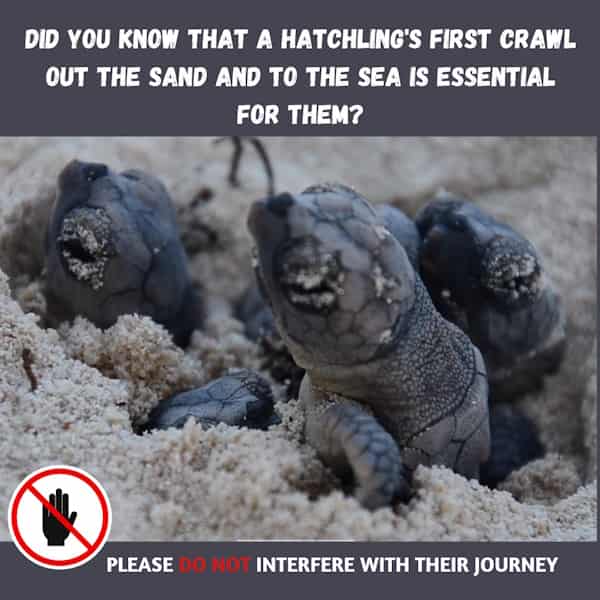🐢 Department of Environment urges public not to interfere with baby turtles
🏖️ Interference with hatching process can cause harm and is a criminal offence

The Department of Environment (DoE) is advising the public to avoid interfering with baby turtles as they emerge from their nests. The experts have clarified that these small creatures do not require assistance and that attempting to extract them from the sand can do more harm than good. Only authorized DoE teams are permitted to intervene with wild nests. It is crucial for the hatchlings to emerge naturally. The nests laid this season are now hatching, and the babies, which usually emerge at night, can still appear during the day when it is raining or cooler. 🐢
During their final days in the nest, the hatchlings undergo shell straightening, absorb the last remnants of the yolk, and acquire chemical and magnetic cues that aid in the development of their orientation and navigation abilities. Interference at this stage can have long-term negative impacts on their fitness and survival. Disturbing a nest alters the sand compaction and can prevent hatchlings deep in the sand from being able to climb out. The hatchlings are extremely sensitive to artificial lighting. Anyone fortunate enough to witness a hatching should avoid using any light and give the turtles plenty of space to reach the sea. 🌊
The only time intervention is acceptable is if the hatchlings are in imminent danger, such as heading in the wrong direction towards buildings, pools, or roads. In such cases, the public is urged to immediately call the Turtle Hotline at 938-NEST (938-6378), and an experienced DoE turtle team member will assist. Sea turtles are a Part 1 Protected Species under the National Conservation Act (2013), and any interference with a sea turtle, nest, or hatchlings is a criminal offence. 🚫





